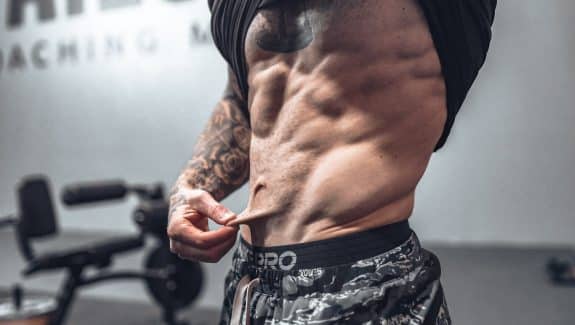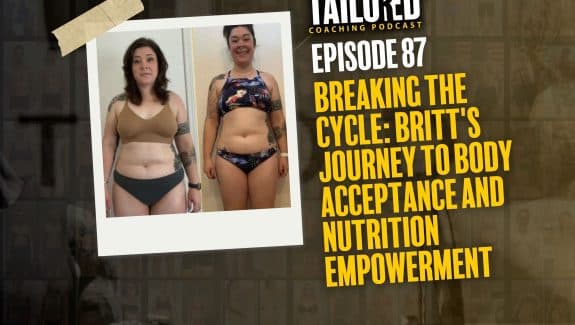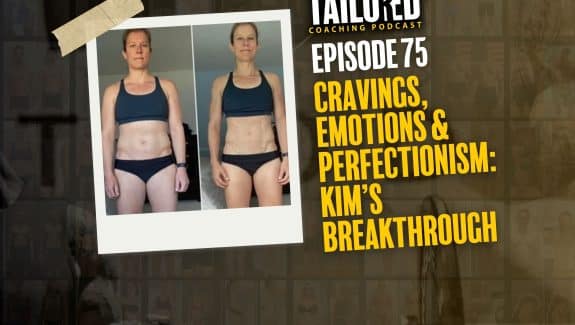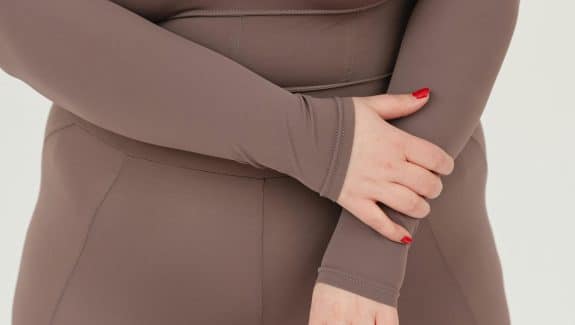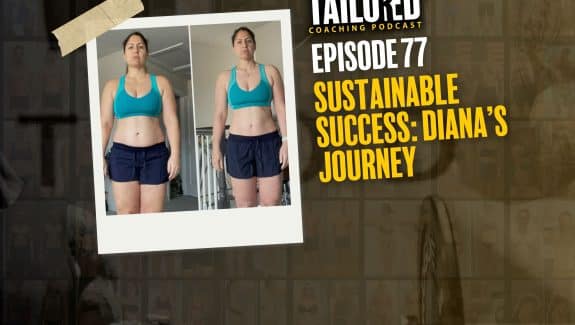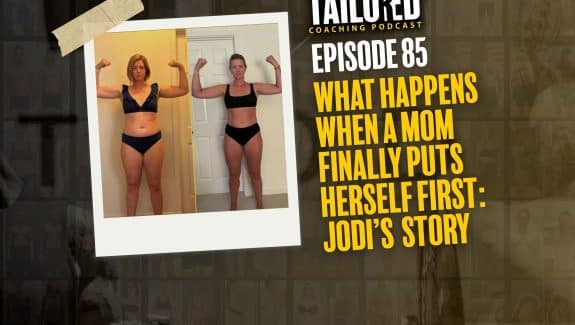Let’s talk Protein. Highly debated, greatly misunderstood, over-consumed by gym rats, and vastly under-consumed by the general population.
It’s a topic I get asked about every single week by followers on instagram or via email for the podcast and in all honesty, it’s actually one of my favorite topics because it’s such an important macronutrient that it’s pretty easy to talk about.
But before we get into all that, here’s what you need to know:
→ Protein is critical for many human processes, so neglecting it can be detrimental to your health and physical progress.
→ Not all proteins are created equal, so the type you consume actually is important to consider when focusing on body composition changes.
→ Eating 0.7g/lb. is enough but most likely subpar or less than ideal.
→ Eating above 1.2g/lb. is not dangerous but doesn’t show much added benefits by any means.
→ When dieting (in a caloric deficit) you may benefit from raising protein higher than your normal intake.
→ When massing (in a caloric surplus) it makes sense to bring protein down to the lower end of the range, because carbs/fats will be set higher.
Let’s start this article off by defining what protein actually is, because I think it’s important to truly understand what you’re consuming as a human being – be that you’re a serious lifter, athlete, or just the garage gym meathead looking to lose his beer belly.
No matter who you are, if you’re reading this or participating in any nutritional protocol, you should be educating yourself on the what, why and how’s of everything. Without educating yourself, you will not understand how this will work for you long-term and more importantly you will not be as consistent in the short term (this is why inside our nutrition coaching, we prioritize client education – click here to apply today).
PROTEIN – Pro·tein
“Any of a class of nitrogenous organic compounds that consist of large molecules composed of one or more long chains of amino acids and are an essential part of all living organisms, especially as structural components of body tissues such as muscle, hair, collagen, etc., and as enzymes and antibodies.”
Ok – now, for all the people reading this who are not scientists or geeks like me.
Protein is a macronutrient that contains 4 calories per gram, meaning if you consume 100 grams of protein – you’ve consume 400 calories.
Protein is an essential nutrient, which means we cannot survive without consumption of it on a daily basis for extended periods of time. This is why it’s glamorized so much, rightfully so, and people tend to lean on it as the crux in any nutritional protocol.
It’s primarily found in animal sources (more advice on where to find it later in the article) but can also be found inside other sources, like nuts and legumes.
Protein as a molecule is made up of amino acids, which are known as the building blocks of protein. They literally make up protein; you can look at it just like macros make calories – because within calories, there are macronutrients. Although it’s different, this may help you understand that you can’t really have one without the other.
There are 21 amino acids in total, but only 9 are essential. It doesn’t mean that the rest aren’t important, this just means they’re essential for consumption because your body and cells cannot produce them – so we must consume them.
Within the essential amino acids (histidine, isoleucine, leucine, lysine, methionine, phenylalanine, threonine, tryptophan and valine), there are 3 very common ones sold inside BCAA supplementation – these are isoleucine, leucine, and valine. The reason these are often secluded for supplementation is because these 3 have the greatest effect on muscle protein synthesis, specifically leucine.
Only issue here is that many studies allude to the fact that even these “BCAA’s” work much better when in combination with all the essential 9 amino acids, which makes consuming EAA’s or whey protein possibly more advantageous. It’s up for debate but my opinion is of the later or even better… EAT REAL FOOD!
What Can Protein Do For You?

Now that you understand what protein is in its truest form, let’s get onto the applicable stuff.
I’m going to first break down WHY you need to be consuming protein, going over the main benefits of consuming enough protein.
Then we will finish off by going over some specific calculations for you to leave here with so you can apply what you’ve learned today and start seeing better results, pretty much immediately.
MUSCLE MASS GROWTH / RETENTION
Protein is the foundation for muscle tissue, in fact muscle tissue, in a way, IS protein – literally. Muscles are made up of two types of filaments, actin and myosin – which are both proteins.
Like all proteins, they’re made up of amino acids that are all linked together. A good way to think of it, stealing from Sarah Dacres Mannings, is to picture protein like a wall, with all the amino acids being the bricks. If you want to build up the wall, you need the bricks. Just like if you want to build muscle, you need amino acids (protein).
Because of this, there have been countless studies to show that protein is necessary for the act of building muscle tissue [1,2].
So when looking at changing your physique, whether you want body fat loss or muscle mass growth or realistically even performance enhancement because it takes protein in order to build muscle and therefore strength/work capacity… you just need to intake enough protein, it’s a requirement.
When we push harder into fat loss, it actually becomes even more critical to have enough because you cannot maintain muscle mass without taking in enough protein, specifically when in a caloric deficit because you lose all.
In fact, studies will actually show that muscle protein synthesis increases in dieting individuals who increase protein levels just above a typical dose of 1g/lb. [4,5]. This means that the anabolic response in an individual’s muscle is more likely to occur when following a higher protein intake, which is a very important aspect when striving to build or maintain muscle mass during a cut.
What studies have also shown is that supplementing with a protein source pre and post workout results in maintaining more muscle mass and gaining more strength, during a caloric deficit, compared to a group only consuming carbohydrates. There is definitely an argument for consuming both, explained in my carb article, but the fact doesn’t change that protein needs to be a staple.
They have also shown satiation to be higher, making a deficit more manageable and consistency to be easier, and stress and fatigue to be lower in individuals dieting on a higher protein approach [3].
What all of this ultimately means, is that regardless of our physical goal – be that performance, muscle mass, or fat loss – following a higher protein diet is going to be beneficial for your muscle tissue, but we’ll get onto what a higher protein intake looks like later on.
TEF (THERMIC EFFECT OF FOOD)
One very well known benefit to protein is that the TEF is much higher than any other macronutrient. More accurate research discusses “DIT” or “Diet Induced Thermogenesis”, but nonetheless they’re pretty much the same thing.
Protein has a TEF of 20-30%, whereas carbs sat at about 5-10%, and fats stay between 0-3% [6].
This essentially means we burn more of what we consume in caloric expenditure via digestion and absorption with protein compared to any other nutrient.
So what does this mean for your body composition?
It means that there is more caloric expenditure and a higher metabolic effect when eating protein. This is a good thing when on a diet aiming for fat loss, because we will not only be preserving more muscle mass while consuming a high protein diet but we will also be increasing our energy expenditure.
APPETITE REDUCTION
We already touched on this inside the muscle mass section, but it’s worth saying twice with some science to back it up because it’s just that important inside a weight loss nutritional strategy.
Protein is the most satiating nutrient, meaning it makes you feel more full than carbohydrates or fats do. Now this can be pretty individual, especially in the satiety rate with carbs vs. fats – some people do better on one rather than the other.
But protein will always reign king in staying full because a.) protein reduces your level of the hunger hormone ghrelin, which can regulate appetite, and b.) because it also boosts the satiety hormone peptide YY, which also makes you feel full [7,8].
YOU CAN’T OVER-EAT PROTEIN
I mean this in two different ways.
The first being that it’s almost impossible to get fat on lean protein sources because… well… it’s just hard! Can you eat 2 cups of egg whites for breakfast, 3 chicken breasts for lunch, 2 steaks for dinner, and a bowl of cottage cheese for desert? Probably not, you will be STUFFED.
Now, I never recommend this much protein to our clients because there’s no significant benefit to increasing your protein higher and higher, plus this would be a gastric disaster.
But I do recommend a higher protein diet and it proves to be successful in 99% of the people we work with (there’s always the 1%) because it keeps them full, helps maintain and build muscle mass, burns more calories through the TEF, and last but not least – it almost literally cannot be stored as body fat.
In fact, they’ve done multiple studies where individuals consumed upwards of 2g/lb. of bodyweight (5.5 times the commonly recommended dose) for short periods and even 2 full years. Even though there were extra calories coming in via protein, this group did not add any excess body fat or have any negative health implications [9,10].
What this tells us is that a.) protein is very unlikely to be stored as body fat, ever, and that b.) a very high protein diet, although not conducive to extra muscle or strength, does not have any adverse health risks associated with it.
PROTEIN DEMANDS INCREASE AS YOU AGE
As we get older, many processes stop or at least slow down – its just part of the human life cycle. Luckily keeping protein higher can actually prevent these catabolic processes from happening.
Both bone health/growth and muscle tissue health/growth declines as we age, but protein directly impacts these in a positive way by helping us maintain more of this tissue and preventing breakdown [11].
Another process that slows down as we age is actually muscle protein synthesis – the anabolic effect protein has on our body. Because of this, we should actually be increasing protein a bit higher than average as we age. So even if you stop chasing the 6-pack as you get older, you’ll still need to be aware of your daily protein intake.
So What Types Of Protein Should I Be Consuming?

This is a controversial topic, simply because my recommendations are not going to abide by the guidelines of a vegan or vegetarian.
So I must start this by saying, we work with both vegans and vegetarians and have for years now. So in saying what follows, it does not mean results are impossible if you’re not consuming animal products.
But what the literature shows us is that plant based proteins are less bioavailable and therefore do not have the same MPS/Anabolic effect that animal sources tend to have. So when targeting body composition changes and performance enhancement, it is advantageous to consume animal based proteins.
There are ways around this as a vegan or vegetarian, however. Things like supplementation, nutrient timing, and aiming for specific plant based foods to be the majority of your protein intake. Check out our article on this topic, right here.
The main reason why animal based proteins tend to be more advantageous to body composition changes is because their amino acid profile is better than that of plant based sources.
This basically means that the amino acid build up inside vegan sources is not complete, whereas animal protein sources do have a complete amino acid build up and this leads to better absorption of the right amino acids (leucine, specifically) which therefore leads to more lean muscle tissue growth and/or maintenance [12, 13, 14, 15, 16].
Lean Protein Sources (* Fattier Sources) |
|
How Much Protein Should I Be Consuming?

THAT ↑ is the million-dollar question, isn’t it?!
And as you can probably imagine, if you know me at all… my answer is, it depends.
Studies show that there isn’t much difference in the results of body composition change occurring between 0.72g/lb. to 1.09 g/lb. (both which are higher percentages than most diets). But what they did find is that the athletes on higher protein noted less fatigue from training and did not store extra body fat despite the extra calories coming from protein, as we discussed earlier on.
The big take away is simple… If you like to eat some extra protein, do it. It really can’t harm you and there is a high probability that it actually may benefit you, especially if you’re in a serious deficit for a period of dieting.
My recommendation is to set it at your 0.7-1.2g per lb. of your bodyweight depending on where you’re at in the body composition spectrum (see below).
Protein Requirements For Cutting/Fat Loss |
|
| 50+ lb.’s or More | 0.7g x BW |
| 30-50 lb.’s | 0.8g x BW |
| 15-30lb.’s | 0.9 – 1g x BW |
| 0-10lb.’s | 1 – 1.2g x BW |
Protein Requirements For Gaining/Muscle Gain |
|
| Beginner | 0.8g x BW |
| Intermediate/Advanced | 1.0g x BW |
Protein Requirements For Maintenance |
|
| Ages 18-30 | 0.8-1g x BW |
| Ages 30-50 | 1.0-1.1g x BW |
| Ages 50+ | 1.0-1.2g x BW |
| The exceptions with age related intakes are dependent on current muscle and body fat levels, so this is the most varying and individual table of the three. | |
To summarize the equation tables (all which are pulled from our free diet guide, The Nutrition Hierarchy – Download it HERE):
→ When an individual has a lot of weight to lose and is starting from the obese phase, we can use much less protein within the diet because of the already stored energy on their body. Also, their lean body mass or true body mass weight is much smaller than their total weight on the scale, which lowers the protein target greatly.
→ As we go into a caloric deficit, protein intake becomes not only more critical for muscle and performance maintenance but also for satiety, which is a big factor inside dietary consistency and adherence. Therefore at times, going over the “needed” protein target is safe and recommended (1.0-1.2g/lb.)
→ As we become older or more advanced in our training, protein may become more critical because our sensitization and processes become dampened.
→ As our caloric intake increases and we lean more towards a mass building phase, protein needs lower because we are taking in more carbohydrates and fats – which serve as fuel and protein sparing nutrients. In other words, our bodies become less dependent or scarce for protein.
Protein may be one of the most influential and critical nutrients when it comes to changing your body composition.
So it’s important for you to track, measure and be aware of how much you’re taking in. We work with many of our clients on not only this, but all of the macronutrients – so that they have a completely individualized nutritional intake that supports their lifestyle, energy demands, training recovery needs, and body composition goals.
But there are many times where we simply prioritize calories and protein, leaving carbs and fats to land wherever the individual please. We do this because that is what works for THAT specific individual in the long run.
At Boom Boom Performance, that’s our number 1 priority: Seeing that the client is being educated, seeing results, and sustaining the progress they’re making, without sacrificing their lifestyle or being overwhelmed.
If you’d like to apply for Nutrition Coaching, so that you can experience the same results the hundreds of people we’re helping do – Click Here Now.
References:
- https://www.ncbi.nlm.nih.gov/pubmed/25169440
- https://jissn.biomedcentral.com/articles/10.1186/1550-2783-9-42
- Helms, E.R, et al., High-protein, low-fat, short-term diet results in less stress and fatigue than moderate-protein moderate-fat diet during weight loss in male weightlifters: a pilot study. Int J Sport Nutr Exerc Metab, 2015. 25(2): p. 163-70
- Pasiakos, S.M., et al., Effects of high-protein diets on fat-free mass and muscle protein synthesis following weight loss: a randomized controlled trial. FASEB Journal, 2013. 27(9): p.3837-47
- Dudgeon. W.D., Kelley, E.P., Scheett, T.P., Effect of Whey Protein in Conjunction with a Caloric-Restricted Diet and Resistance Training. J Strength Cond Red, 2017. 31(5): p.1353-61
- https://www.ncbi.nlm.nih.gov/pmc/articles/PMC524030/
- https://www.ncbi.nlm.nih.gov/pubmed/16469977
- https://www.sciencedirect.com/science/article/pii/S1550413106002713
- https://jissn.biomedcentral.com/articles/10.1186/1550-2783-11-19
- https://jissn.biomedcentral.com/articles/10.1186/1550-2783-12-S1-P37
- https://www.ncbi.nlm.nih.gov/pubmed/18469288
- https://jissn.biomedcentral.com/articles/10.1186/1550-2783-10-S1-P12
- https://www.ncbi.nlm.nih.gov/pubmed/11312815
- https://www.ncbi.nlm.nih.gov/pubmed/19678968
- https://www.ncbi.nlm.nih.gov/pubmed/10584048
- https://www.ncbi.nlm.nih.gov/pubmed/23636241

















































































































